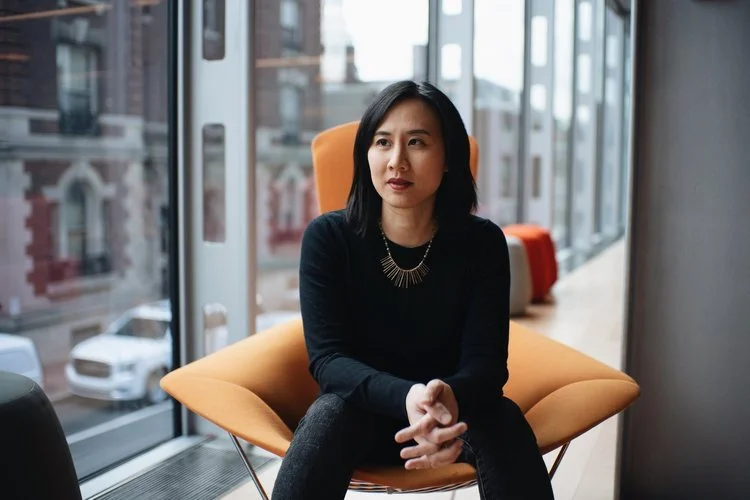Past Episodes:
Sam Lipsyte on Realizing No One F*cking Cares
“I realized no one cared and I could do what I wanted. I realized, even the people who loved me— they were not waking up in the morning worrying about my relationship to the short story. Whatever I did, it would be just for me.”
Heather Radke on the Profound, Unruly Butt
“Our bodies not going to let us be interchangeable parts on a car. That’s not how it works.”
Alyssa Songsiridej on the Freedom of Alienation
“I didn’t develop my own instincts about what I wanted or what being good actually meant to me. I kind of reached this point where I felt like I was reaching the limits of that, and I needed to do something else, but I couldn’t figure out what.”
Asali Solomon on the Unexpected Laugh
“I just remember thinking that I wasn’t sad that they were laughing. And that actually the best thing you could do with a piece of fiction was make somebody laugh.”
Saeed Jones on Evergreen Grief
“Grief distorts your relationship to time. The past and the present and the future get muddled.”
Alex Marzano-Lesnevich on The Fact of a Ghost
“The stakes [in this book] are whether or not I can make this claim to an identity that extends beyond the present moment and that is historical. That I can make this claim as part of a community whose members have often been made into ghosts.”
Chloé Cooper Jones on Leaving the Neutral Room
“I can’t ever not be disabled, and I can’t ever present to another person as not disabled. So if I’m acting as though that part of me—the extremely important, real, intricate part of me—doesn’t exist, then everybody around me knows I’m not being very authentic.”
Kay Ulanday Barrett on Finding Nourishment
“When you’re denied pleasure on a systemic level, when you’re not able to access joy the way other people can access joy, food becomes this centripetal, important, necessary force for you.”
Samantha Hunt on the Haunted Manuscript
“Do I believe in ghosts? What’s a ghost? Is a postcard a ghost? Is a bruise a ghost?”
Ingrid Rojas Contreras on Losing (& Finding) Her Past
“The amnesia gave me such a large feeling of wonder and awe, and a love for these stories that I could then write from that point of view. That was the missing element that I didn’t have before.”
Amy Fusselman on Writing as Performance
“It’s bliss. It’s fucking bliss. It’s an opening. It’s a drug, for sure. And maybe there’s no one present, but my brains’s exploded. Who doesn’t want that?”
Celeste Ng on Art as Resistance Work
“I’m not just fighting against things but I’m fighting for things as well. There’s a vision of a world that I want to grow up into, and art is giving me a glimpse of that.”
Michelle Tea on Making a Queer Family
“It was a very clear decision that had to be made about whether I was going to try to have a child or not. I didn’t necessarily feel emotionally clear about it, I didn’t know 1—% if it was what I wanted, or if it was what would be the best thing for me. But a decision just had to be made.”
Keith Gessen on Becoming An Angry Dad
“Looking back on it, I think I’ve always been a kind of angry person. But I don’t know. I thought I was a patient person, at least. A nice person?”
Crystal Hana Kim on the Mystery of Our Parents
“We will never know anyone that we love in a full capacity. I will never know the full story of who my mother is or who my father is. And my kid will never know the full story of me. I don’t think it has to be sad, but it’s something that I often return to.”
Lydia Conklin on Writing Transition
“The story of coming out, say, for a queer person, is often told in this heroic way. The queer person kind of has to be morally untouchable and perfect.”
Ashley Ford on Choosing Reality
“I was trying to base my feelings about the circumstances of my life off of fantasies, and what things should be like, or what people should be like. It took a minute for me to figure out that if you keep trying to live inside a fantasy, you’re going to be pretty miserable.”
Jhumpa Lahiri on Translating Metamorphosis
“My mother’s death was a metamorphosis for her on the bodily level, but a metamorphosis for everyone she left behind.”
Elissa Washuta on Unsolvable Magic
“Witchcraft was another facet of that, in a way— a mystery I could approach but not fully exhaust.”
Jessamine Chan on the Good Mother in a Bad World
“One does not want one’s dystopian novel to seem hyperrealistic, because that just means the world has gone to pieces.”




















